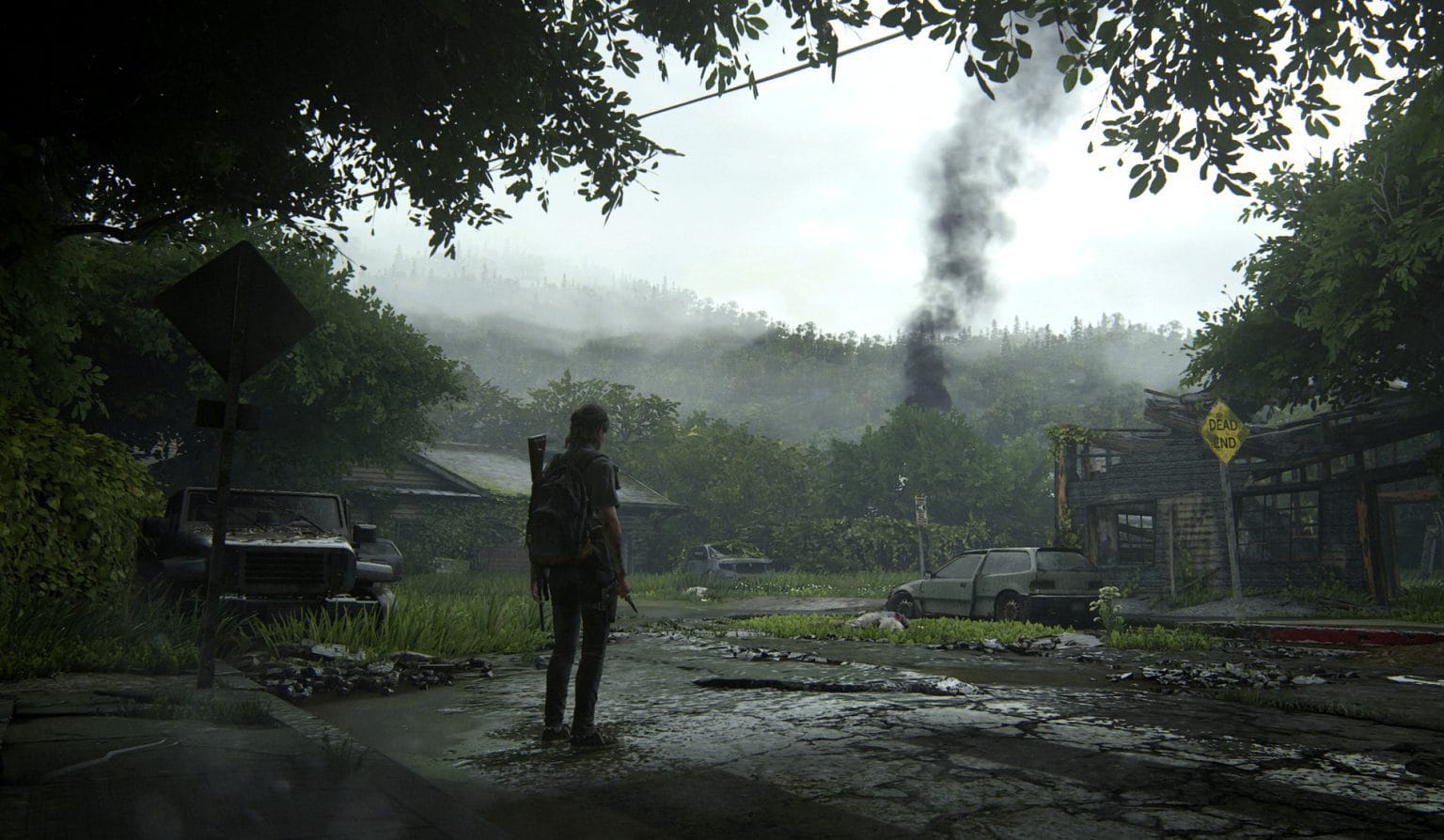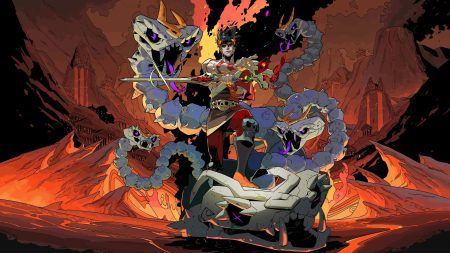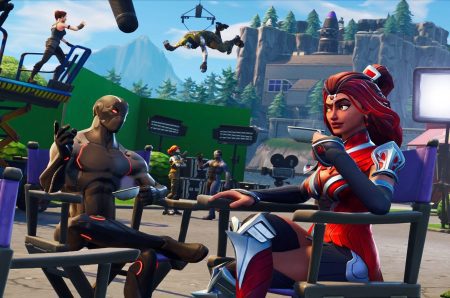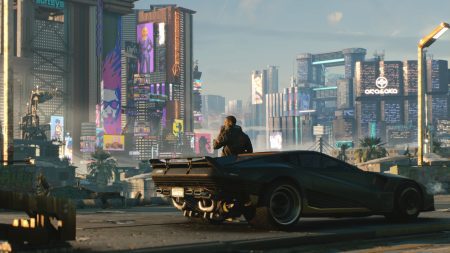Welcome back to Punished Chat, where two friends shoot the breeze about something video game related. For this edition, I spoke with Alan Moss, close friend and podcaster of all things The Bachelor, about the video game industry’s unique cycle of hype, why we get so excited, and how we can all manage expectations better. The following conversation was recorded in late March.
Sam: Welcome to your very first Punished Chat, buddy!
Alan: This is a big deal for me! I’m a little verklempt.
S: Among the friends I have that play video games, I would consider you the one who gets most genuinely excited about stuff. You don’t take a cynical view toward video game announcements. You look at E3 or other announcements and go, “This is cool to see, even if I don’t play any of it. It’s cool and I want it.”
A: I definitely fall into that category! I have so much depression in my life when it comes to sports that I try to have happiness with my video games.
S: It’s rough to be a Jets AND Knicks fan, in general.
A: I’ve always said I hated myself, so that just kind of falls in line with that! (Author’s note: Alan is kidding and wanted me to note that.)
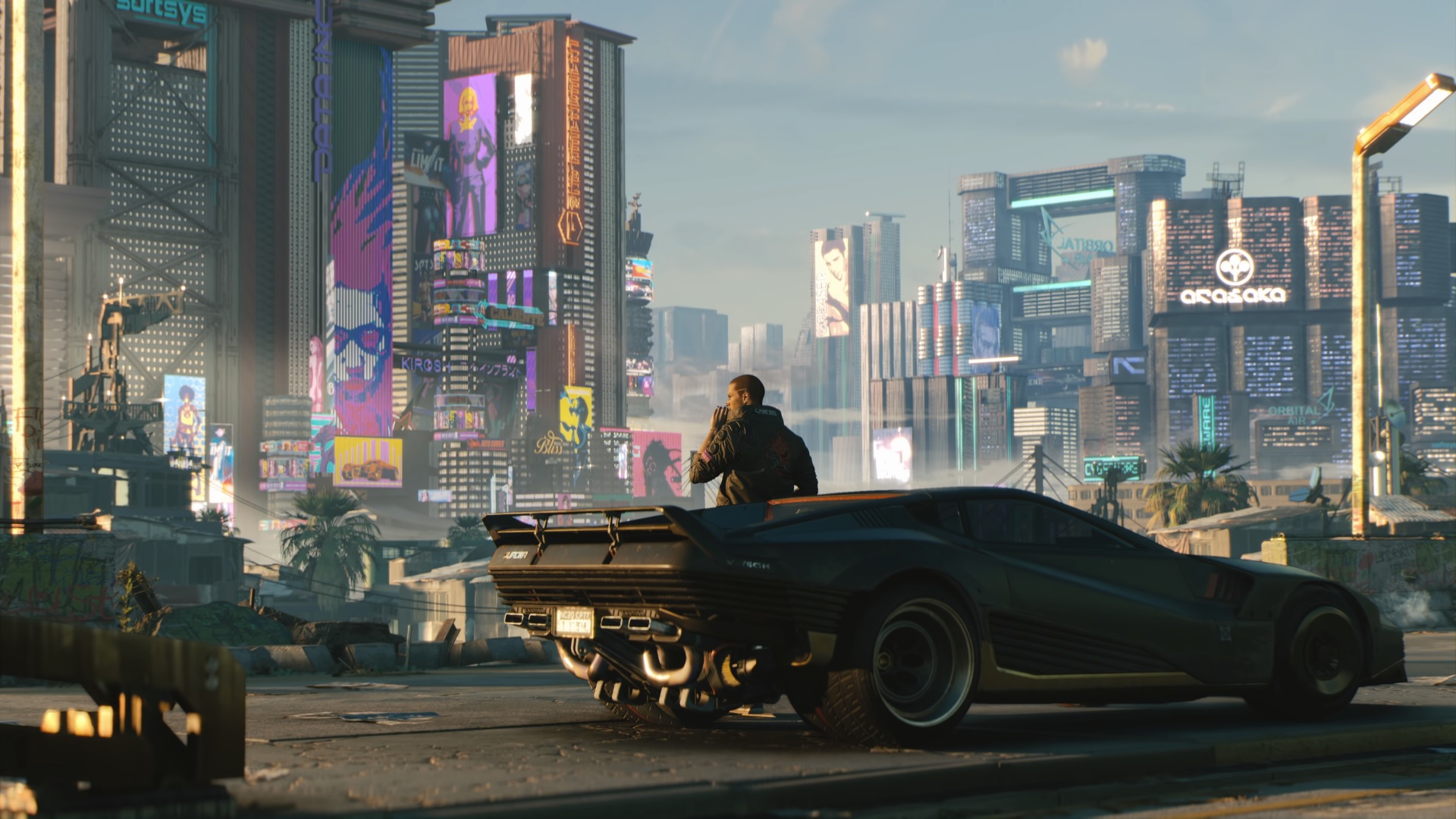
S: Right now, what game(s) are you most hyped about?
A: I’ve got two: I’m very hyped for The Last of Us Part II. That game’s going to be excellent, no matter what. Controversial stuff aside, that game is going to be amazing. Also, I can’t wait for Cyberpunk 2077. I mean, I can wait, give them all the time they need, but I think it’s going to be gangbusters. I’m going to play the hell out of it.
S: Why are those the games that stick out to you? The kinds of games you mentioned are big, AAA-ass games that are really trying to showcase the most powerful graphics and systems. Why are those the games that get you hyped the most?
A: Those just tend to be the games that are in the public eye. When was the last time you heard someone talk about how hyped they were for a small indie game months in advance? It’s because you just don’t really see it.
S: There’s also the section of what I call “prestige indies,” such as Ori and Hollow Knight, which can generate hype for sequels but still not quite at the same level as their AAA brethren.
A: I think that Ori has already surpassed being an indie game, since it’s a Microsoft-published game that they’ve hyped up a lot.
S: It’s also a studio of just 80 people. It’s not like it’s a big, AAA-expensive project.
A: What I mean is, the games I get excited about don’t have to be AAA-made—they just end up being a lot of the time. Ori and the Will of the Wisps was definitely something I was excited about! I’ve just already played it. If we got a commercial for another Ori game, I’d be hyped about that too!
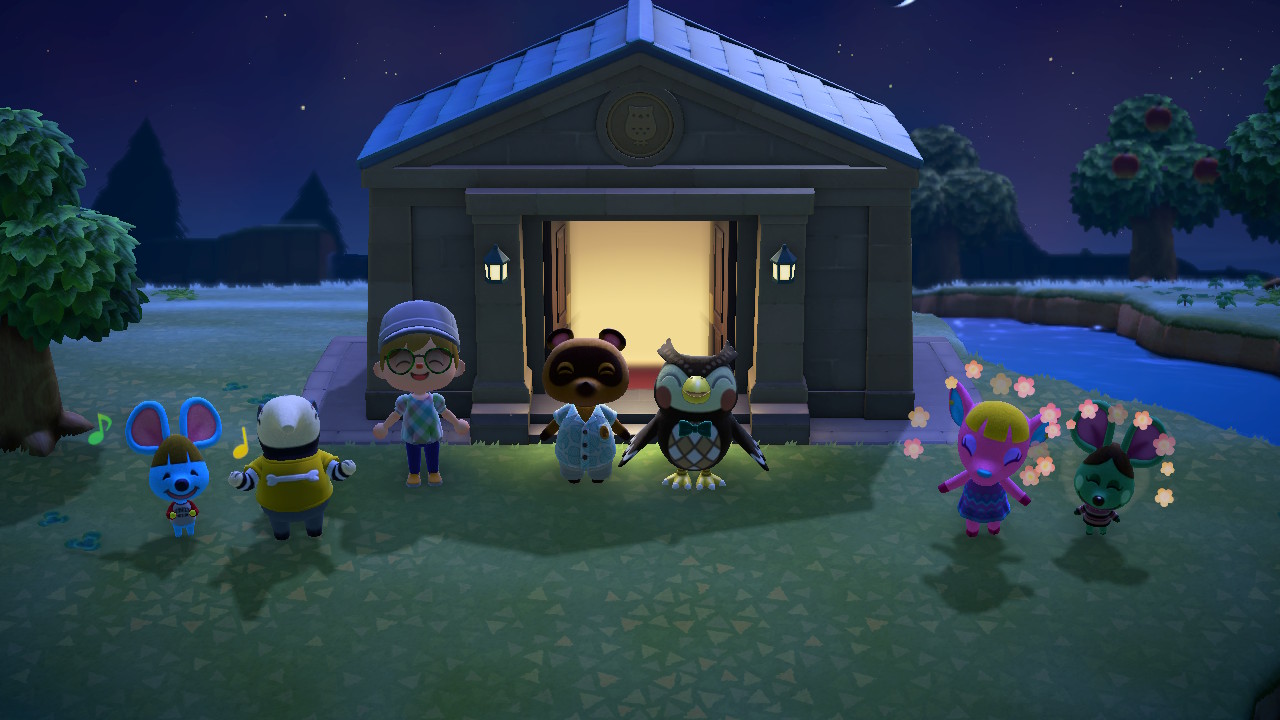
S: That brings up another thing. These showcases like E3, Nintendo Directs, or GDC are basically just collections of commercials. We don’t do that for any other medium. It’s not like we get together and read the first page of ten different books for an hour.
A: Right, because that would be the most boring shit ever!
S: If I sat down and watched ten movie trailers, I expect to see a full movie at the end of that.
A: That’s fair! But what if they added more movie trailers to the Oscars? Would you then be okay with that?
S: No, the Oscars are long enough. Let’s put it this way: If they added movie trailers to the Oscars, they’d have to take out, like, five awards. They’d have to get rid of best short documentary or sound mixing or something.
A: They’d have to get rid of some of these jabronie awards that nobody cares about!
S: Yeah, the ones that are really important to the industry but not really to anyone else. Stuff my dad cares about but I don’t.
A: “Sam, I’m super excited to see who wins best sound mixing!” “OK, boomer.”
S: Going back a little bit, what’s an example of a game you were excited about that 100% lived up to the hype? Also, what’s an example of the opposite, where you were hyped about something and came out disappointed?
A: In terms of living up to hype, the most recent example is Doom Eternal because I’ve been hyped for this game for a long time. I just finished playing it, and boy howdy, that game was everything I wanted it to be! And sometimes I’m really easy. I don’t need a lot of story or whatever. I just need a badass dude killing demons. Sometimes I want a complex story that makes me think about things and really pushes boundaries, but not this time. Doom gave me everything I wanted. For what it was, the visuals and combat were so incredible, I just loved it.
S: What about the other way?
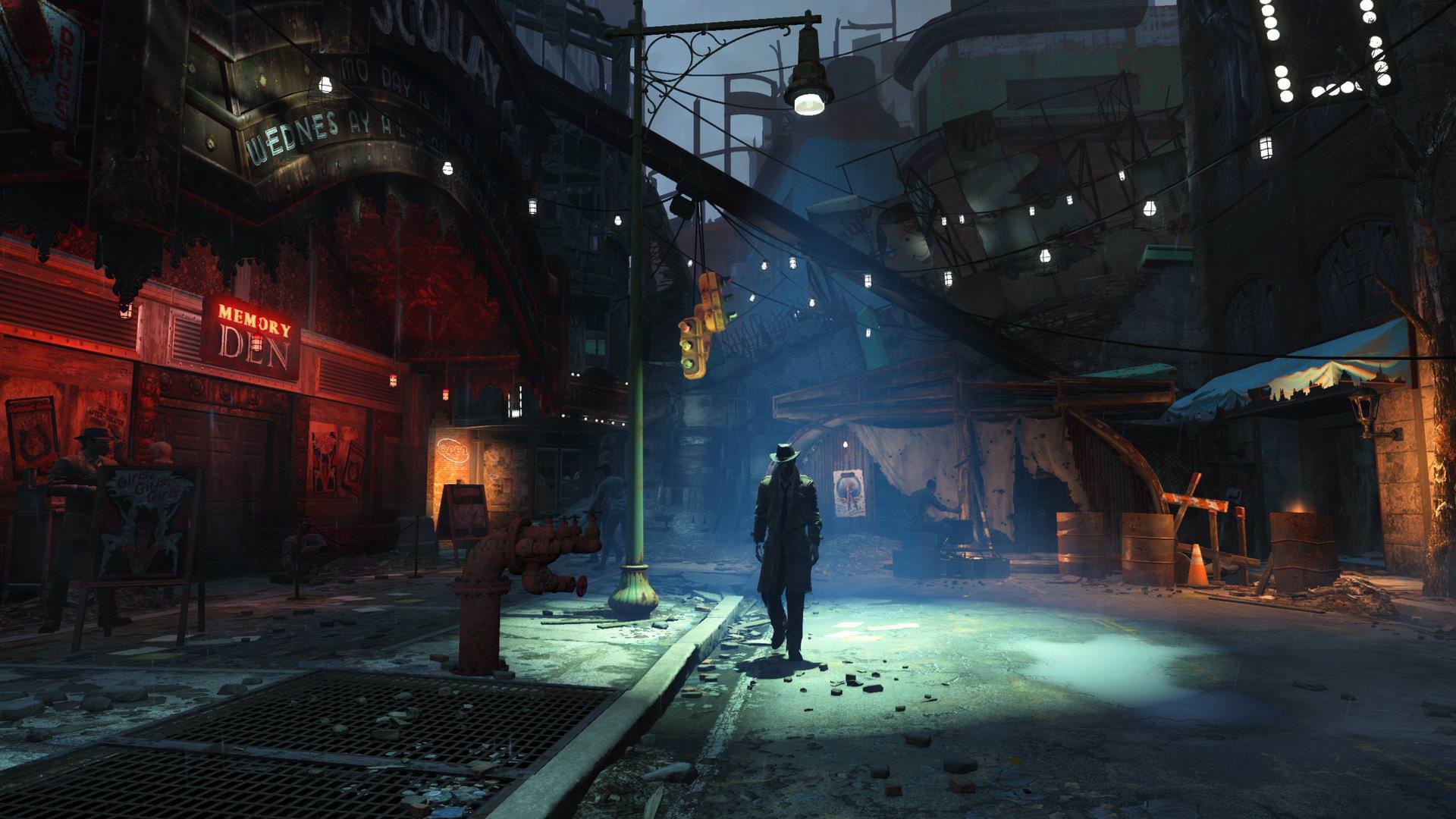
A: Fallout 4 might be a good example. They obviously kept the aesthetic of what Fallout is supposed to be, but it kind of lost the spirit of the series. It just pigeonholed you into these dialogue decisions that I didn’t like in any way. The freedom in Fallout 3 and New Vegas was about saying and doing whatever you wanted and living with the choices. It wasn’t like that in Fallout 4, where the dialogue options were rarely interesting and often not even that clear. In terms of combat, the combat was never a strong point in the series to begin with, and Fallout 4 didn’t really make it that much better anyway, which kind of stinks.
S: For me, when I first saw the trailer of Assassin’s Creed III, I thought it had the potential to be a seminal game. Narratively, mechanically, it could have done a lot, and it just wasn’t good. Obviously, some people enjoyed it, but the experience I had anticipated in my head just wasn’t what I actually played. I know it was ambitious narratively, but it didn’t nail it. It tried to do too much.
A: I haven’t thought about that game in such a long time.
S: Well, yeah, it wasn’t good!
A: Right! And I remember playing it at the time, and thinking “I just don’t want to do this.” I try to finish game stories, but there was just too much going on. Connor stunk as a character. The world was way too busy. There was too much stuff that wasn’t fun at all.
S: What’s another example you can think of?
A: Rage 2. I actually ended up playing it because the trailer made it look sick!
S: Yeah, I remember seeing it at E3 and thinking it looked pretty interesting. But then I saw the gameplay when it eventually came out and it just looked like another boring open world shooter.
A: The only good thing about it was the shotgun. The world stunk, driving around stunk, and it just felt like there wasn’t any love or heart in the game. I mean, it all works, but there’s nothing about it that made me actually care about the world or the characters or anything.
S: It seems that when it comes to hype, the games that tend to live up to the hype the most are the ones that are most clear about what the product is, and the ones that fall short are ambitious but in the wrong ways, or just not executed properly. For example, you brought up Doom Eternal: Everything you saw in the trailers was something you saw in the game, and you pretty much understood what kind of experience you were getting into as soon as the game was announced. It’s not like you thought there would be more than that. Bethesda told you what would be there, and it was all there.
A: Well, there will be some features they’ll probably add in later, but Bethesda definitely gave me the core of what I wanted and what they promised.
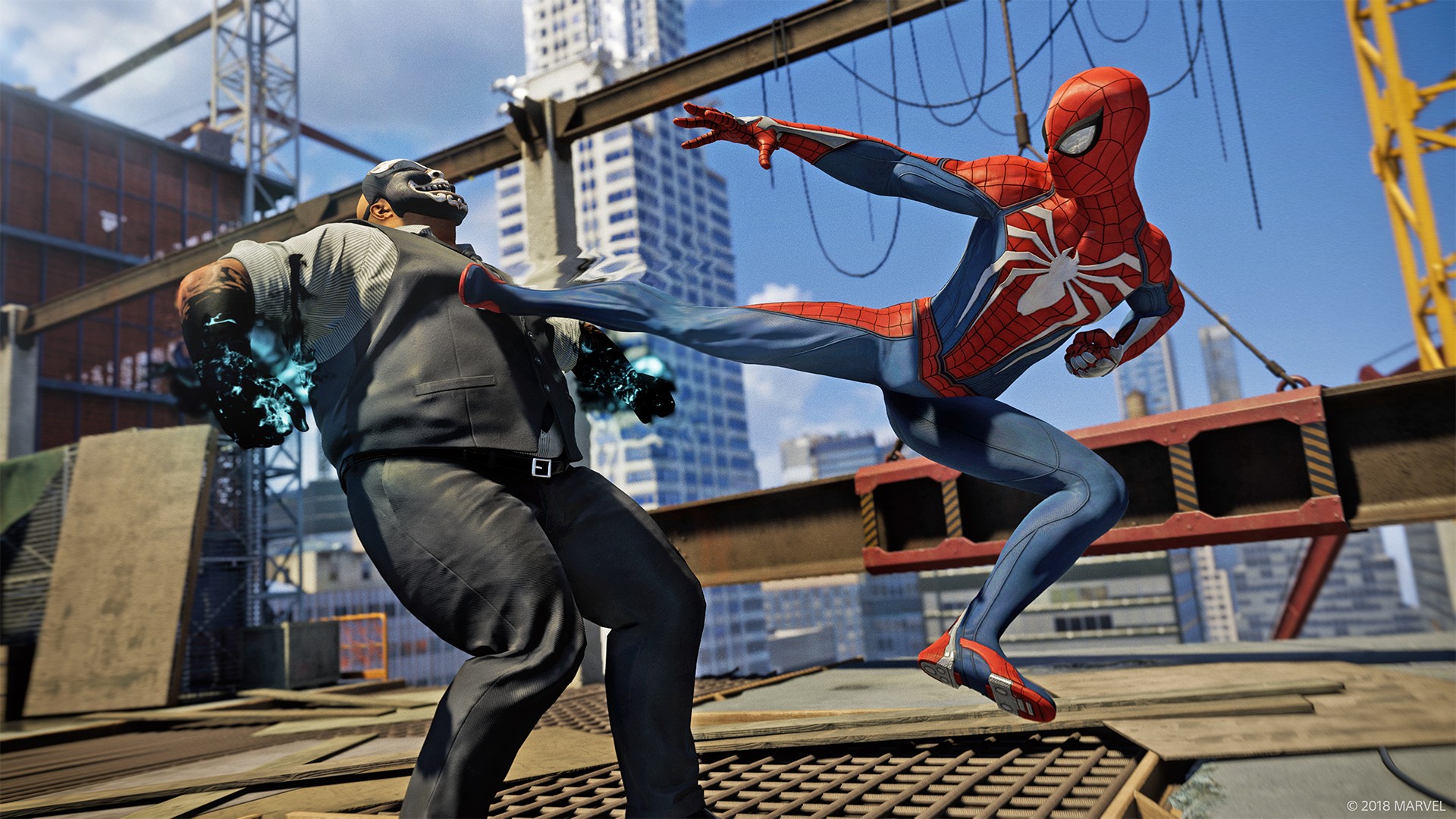
S: I guess I would compare that to when Spider-Man came out a couple of years ago, where the trailer set expectations for what kinds of gameplay you would have, and then the game ended up having more interesting content when it actually came out. But never at any point did Insomniac claim the game was going to reinvent the wheel.
That’s where things get tricky, when games try to seem really ambitious and interesting, and just aren’t. And that’s where hype comes in.
A: Unfortunately, that’s the business! Everyone tries to be a salesman, and a lot of the time we get hoodwinked for games.
S: But we get hoodwinked because of the unique position that we’re in. We always want these big, interesting, new ideas, but we never know where they’ll actually come from. For example, The Witcher 3 was a big deal, but it was also very different from the previous Witcher games. It was from a studio that the average person didn’t even know about six years ago.
A: In fact, they were known for making some not-great games!
S: Right! I guess the way I would put it is that the video game industry plays into hype more than any other industry, and it kind of lives off of it.
Looking at movies, you don’t know how good a movie will be because of the trailer, but sometimes you can tell from certain trailers if a movie will be a disaster or worth watching. You could tell from watching the Suicide Squad trailers that that movie would be bad, and you could also tell from the Black Panther trailer that it would be good. In video games, it’s not like that at all. One of the best trailers I ever remember watching was for Disaster: Day of Crisis for the Wii, and that game never even came out in America.
A: Well, we’re getting that disaster right now in the U.S., aren’t we?
S: Yeah, in real life! (uncomfortable laughter) The Wii did want to provide immersion, right? (continued uncomfortable laughter)
Anyway, you’d have to think the most famous example of when hype goes wrong has to be No Man’s Sky.
A: That’s the biggest example.
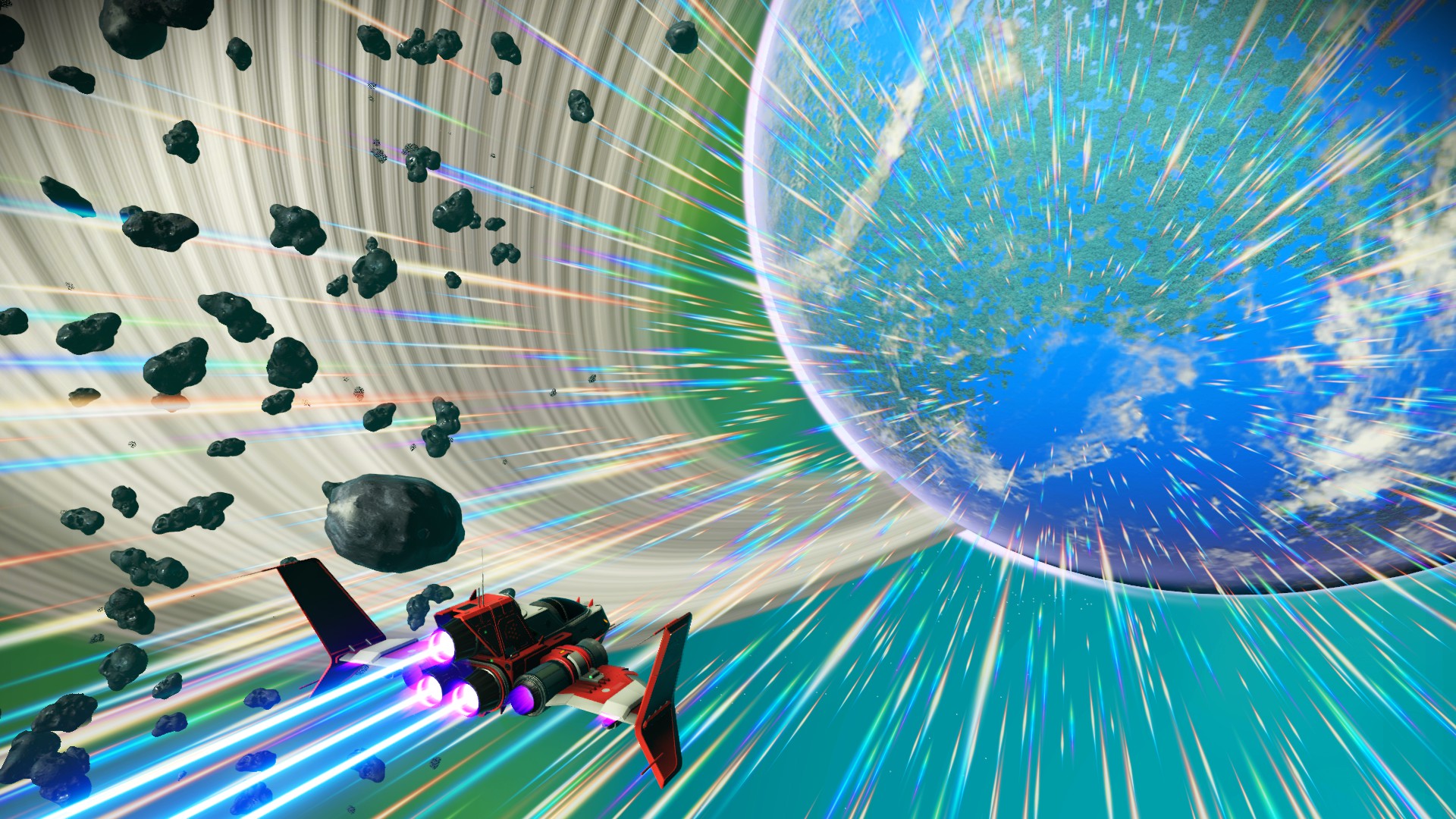
S: It’s the perfect example of how a video game company says, “People buy into hype, they don’t buy into actual explanations of ideas.” No Man’s Sky, even when it came out, was still largely the experience the developers wanted to create; it wasn’t what they were able to sell to audiences at the time. That would NEVER happen in another medium. It just doesn’t happen where filmmakers say something will be in a movie and it just straight-up isn’t there at its release.
A: Well some scenes in trailers don’t actually appear in the final cut, right?
S: I suppose some scenes do get left out in the end, but it’s not like a trailer will show you a prominent character or something and then that character just doesn’t appear in the final movie. If they show a landscape in a trailer, I expect that a part of the movie will still be in that location. We just saw the Fast 9 trailer. If I go see that movie (whenever it gets released) and there isn’t a plane with a giant magnet that can catch cars flying in midair, I might walk out of the theater.
A: “This is bullshit!” I would throw my popcorn everywhere.
S: I understand game development is very different and that things might get cut from the game weeks before it goes gold, but none of this really happens the same way if the industry itself wasn’t intent on selling us the world every single time a game gets announced.
A: It’s like with the guy who made Fable [Peter Molyneux]. He would always say that every Fable would be the best thing you’ve ever seen, and that it’s going to change everything. “Maybe you didn’t like Fable 2? Well Fable 3 is going to blow your mind!” And yeah, Fable 3 was good, a little better than the last one, but they basically lied about how different it would really be.
S: That’s why I appreciate when Nintendo does Directs about specifically one game sometimes, even if it’s a game I don’t really care about. I know going into Animal Crossing: New Horizons exactly what it was going to be, because Nintendo never bullshitted me about it.
A: They never bullshit you.
S: They said, “This is the game we’re giving out. Here’s what’s always been there, here’s what’s new, here’s what you should expect.” And that’s exactly what it was!
A: Although they’re bullshitting me by giving me too many Fire Emblem characters in Smash Bros. Make Smash more diverse again!
S: But even with Smash, anytime they introduce a character, they have a full demonstration of all their moves and unique abilities.
A: They’re always very direct (ha!) and honest about the kind of game you’re going to get, and we as gamers should appreciate that honesty.
S: It makes me think about whenever EA, Microsoft, Ubisoft, or the like has this big E3 performance, where they try to showcase a vertical slice of a new game, but they don’t really get into a lot of the details about it. Like, Cyberpunk 2077 had a demo at E3 2019 that was only shown to the media, and journalists couldn’t record footage or sound or anything, so the only thing everyone else could know about was their written account of what they experienced. I thought that was really weird! I’m not saying the game will be bad because of that, but it’s strange to try and sell me on an experience that I can’t actually see.
A: Right, like I’m just supposed to take you at your word? If you’re a reputable reporter, I probably will, but the proof is in the pudding so to speak.
S: When Watch Dogs: Legion was announced, it seemed like a cool idea, but a very ambitious one where there are still scant details about what exactly the experience will be.
A: Even the original Watch Dogs was embroiled in controversy because of how the graphics in the actual game were way worse than in the E3 presentation. Kind of a debacle, to be honest. What was funny about that was the graphics were in the game; miners found them, but they just weren’t used for whatever reason. I just think that’s an interesting thing to look back on.
S: Let’s get back to No Man’s Sky for a second. Game launches just don’t matter as much as they used to for a number of reasons, particularly digital downloads, patches, DLC, etc.
A: Remember midnight launches?
S: Dude, I was at the Gears of War 3 launch!
A: I wish we could do that again. I miss game launches.
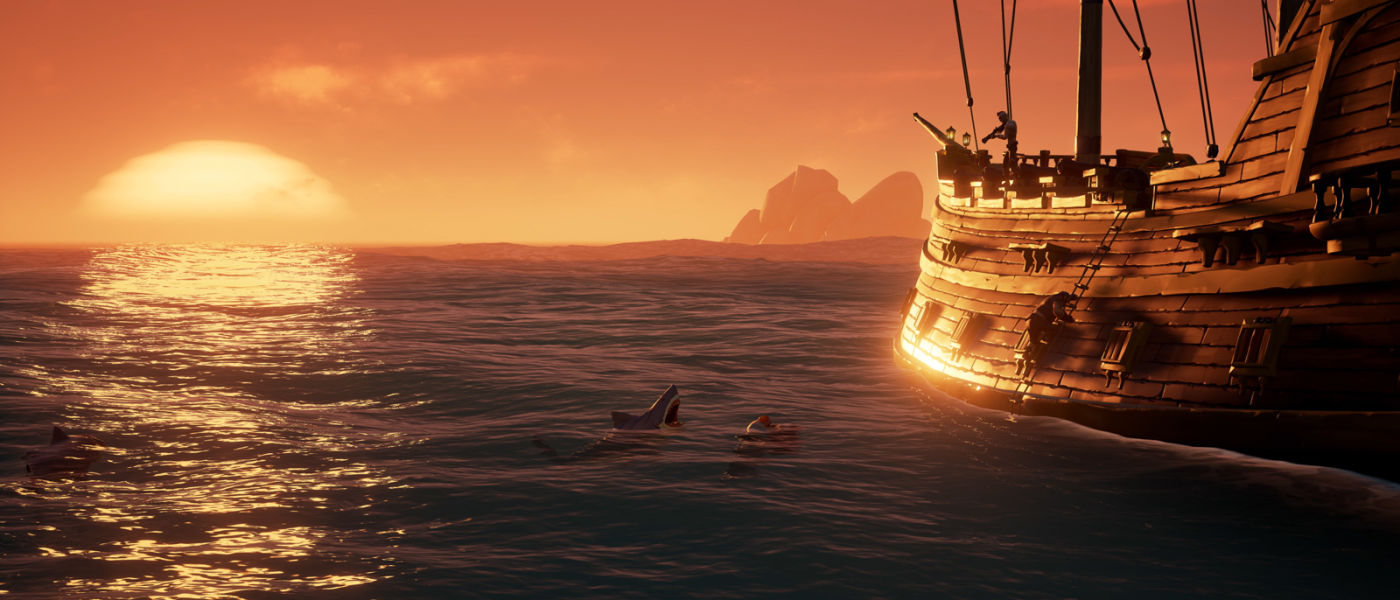
S: But at the same time, this is better long-term because if a game comes out in a flawed state, the company can fix things or add new features whenever they want. And I think about some of the games people play now, like Sea of Thieves or Destiny… The launch is going to be whatever it’s going to be, but over time the experience can improve and eventually become the game that was promised. So I guess what I’m asking is: Does it matter if a game lives up to the hype right away if there’s a long-term vision? If there’s a long-term vision, does there need to be a lot of hype for it?
A: That’s a good question. I don’t know, it’s hard to get me to keep paying for a game and just say that it’s good and it gave me everything I need. Even though I like what Destiny has ultimately become and I think it’s good now, I don’t think the hype was justified for what I paid for at launch.
S: Let’s put it this way. Bleeding Edge came out recently, and I don’t see the point of even reading reviews for that game when it first came out. If it’s supposed to be updated frequently, shouldn’t I just check in for new writing every month or so? What difference does it make now if it works in a month?
A: Well, consider Overwatch. Overwatch works now, and it worked from day one. They added a bunch of content over the years, but the initial product was a success on its own. The video game hype cycle was huge for it, and with all the content they’ve added, I’m still playing and loving Overwatch.
S: That’s true. Overwatch was a game designed for the long-run, but it did matter that it launched well, because it created that player base.
A: But it’s not even a game as a service! It was meant to be a true multiplayer game right away, and that’s what it was. But everything trying to be a service game raises some issues. Like, as much as I appreciate improvements to The Division 2 and Destiny 2 from their predecessors, I just think that unfortunately it comes down to greedy tactics from publishers and releasing unfinished products. Even a game as a service that eventually becomes good that starts off incomplete is wrong. Even if they patch it and stuff to it as we go along, it doesn’t make it okay to release a game that wasn’t good from the get-go.
S: I suppose another way of phrasing it is: If a game isn’t going to be a big deal at launch and will come out with certain features missing or certain issues to tweak, does the messaging around it have to change? Does the way you hype it up have to change? I feel like if No Man’s Sky was sold as an Early Access title when it came out, the reaction to it at launch would have been completely different. People would have viewed it as a fun anomaly that might eventually become the game they wanted, but it wouldn’t have had the weight of mass hype.
A: I think that’s totally fair. We need to change how we talk about games.
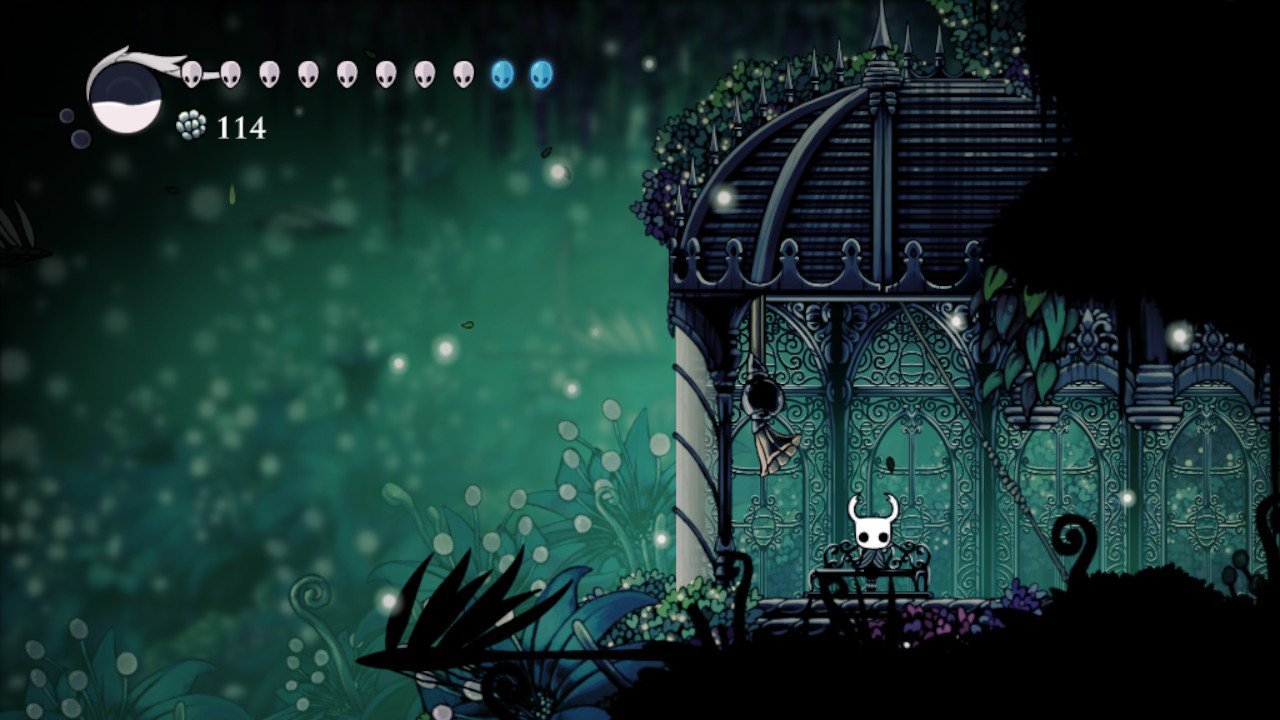
S: Has hype culture had a positive or negative impact on games discourse?
A: I think it overall has a negative impact, but there’s a positive side to it that I can’t deny. Look at Hollow Knight. Before it was announced for Switch, hardly anybody played that game. Once it got to the Switch, all of a sudden everyone is hyped up and talking about it constantly. Even though the game was already out, at that point it became a huge sensation, and everyone was talking about it for months like it’s a masterpiece.
So hype can save games that really deserve it. But hype can also trick us and cause us to spend money on disappointing things, creating negative feelings toward these companies. If a company hypes up a game that ultimately isn’t that good, fans will be less inclined to expect much from them in the future. If they roll out another bad product, then their reputation goes even deeper into the gutter, and it ultimately creates a bad cycle and harms the relationships between players and game makers.
And these companies for the most part are really trying! Some companies deserve some hate, but most of them don’t, and it’s unfair of us to treat them as such. Ultimately, hype puts unnecessary pressure and expectations on game companies that causes us to be too hyped for it, and when it’s not what we wanted, we’ll be disappointed.
S: I was thinking about how people get hyped sometimes, and if a game comes out that people are excited about and someone writes a bad review, that person gets flamed a lot on Twitter.
A: Leave those reviewers alone! They’re just telling you their opinion!
S: But also, why are you getting mad about something that isn’t even out yet? Why are you getting so defensive about something you haven’t even played yourself?
A: “YOU TAKE BACK THAT 5/10 YOU MOTHER FUCKER!!! DO YOU EVEN KNOW GAMEZ?!”
S: If I recall correctly, a freelance reviewer at IGN gave Doom (2016) a 7.1/10, and they got harassed online endlessly for it. I think that same critic wrote on a Reddit post or something afterward that they stopped doing reviews for IGN and preferred to do reviews without scores, because in their mind a 7.1 was a good score, but clearly others did not agree.
A: We could go on and on about the problems of ratings within games and how they’re so arbitrary, and how people’s reactions to them are so obnoxious.
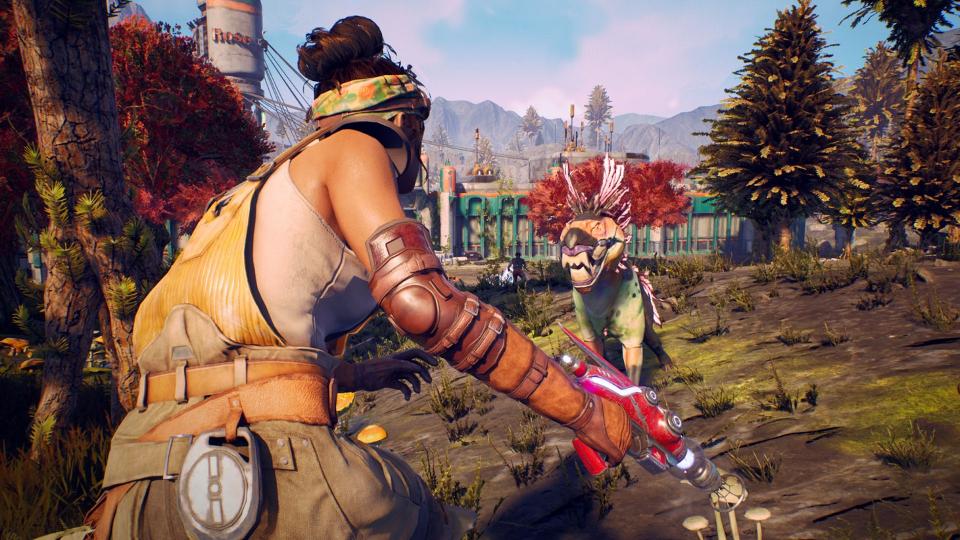
S: But one thing about hype culture that I think is positive, however, is that in a weird way, hype makes it so that people who love games can always have something they look forward to. That’s true of any other medium, but I do like the idea that there are set times every year where I can sit down and see news about upcoming things to get excited about. I know that’s just me buying into corporate messaging and whatnot, but at the same time, if I’m going to buy the games anyway, I’d like to know more about them and be an informed consumer.
Looking back, I kind of wish I had more access to gaming news as a kid outside of the few sites and magazines that were out there, because then I would have probably discovered more cool games that way. For example, I never got into Animal Crossing as a kid because I thought it looked boring, but if a ten-year-old me could have seen a video from Nintendo explaining all the features of the game, their vision for it, and everything I could do, I might have given it a chance. Back in the day, all I had was a few Nintendo Power ads and the weekend I spent playing it when I rented it from Blockbuster.
A: God, that’s an old sentence.
S: Well here’s a new sentence: The distribution we have of games now may affect how we get hyped about them. Look at it this way: If you have Xbox Game Pass, you have access to all the Microsoft games right when they come out, and you have some other games that come out on the service within a reasonable window. For example, The Outer Worlds, which we both believe lived up to the hype, didn’t really hit it with others. But if you played that game on Game Pass and didn’t like it, it’s not like you paid extra for it, so I wonder if that affects the hype cycle. Maybe you’ll think, “It wasn’t great, but it didn’t burn a hole in my pocket, so it’s not a big deal.”
A: Price does mean a lot! $60 is a lot of money to spend on something that you might only play for a few hours.
S: It makes me wonder if, in the future, new forms of distribution will affect how we react to super-hyped games.
A: I completely agree. I was super hyped for The Outer Worlds, but I was also super happy that I didn’t have to spend $60 on it. It also highlights the biggest reason hype is dangerous: We don’t want to spend money and time on things that aren’t worth it. If you want to live a normal social and professional life, you can’t spend 60 hours a week playing video games. The hype cycle really affects that.
And that’s hype! Or, well, a brief (?) chat about hype. Anyways, my thanks to Alan for bringing the heat as always! Check out “The Final Bros Tonight,” his excellent podcast on all things The Bachelor here.
Sam has been playing video games since his earliest years and has been writing about them since 2016. He’s a big fan of Nintendo games and complaining about The Last of Us Part II. You either agree wholeheartedly with his opinions or despise them. There is no in between.
A lifelong New Yorker, Sam views gaming as far more than a silly little pastime, and hopes though critical analysis and in-depth reviews to better understand the medium's artistic merit.
Twitter: @sam_martinelli.


